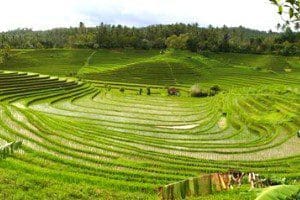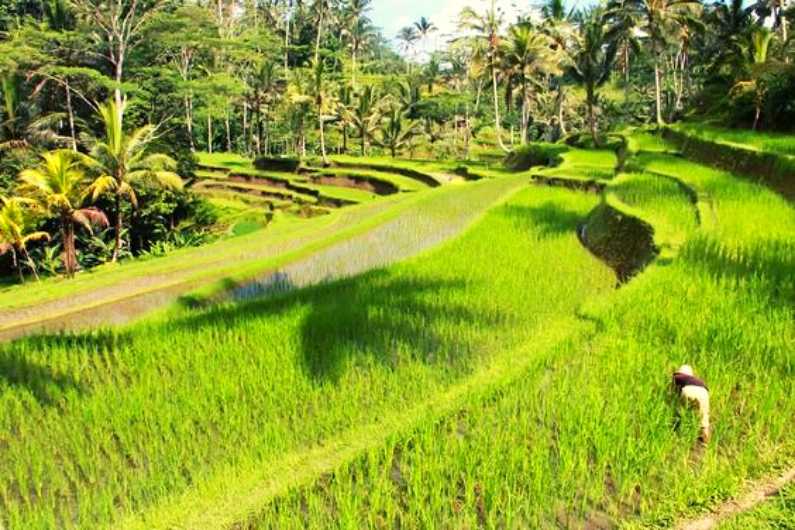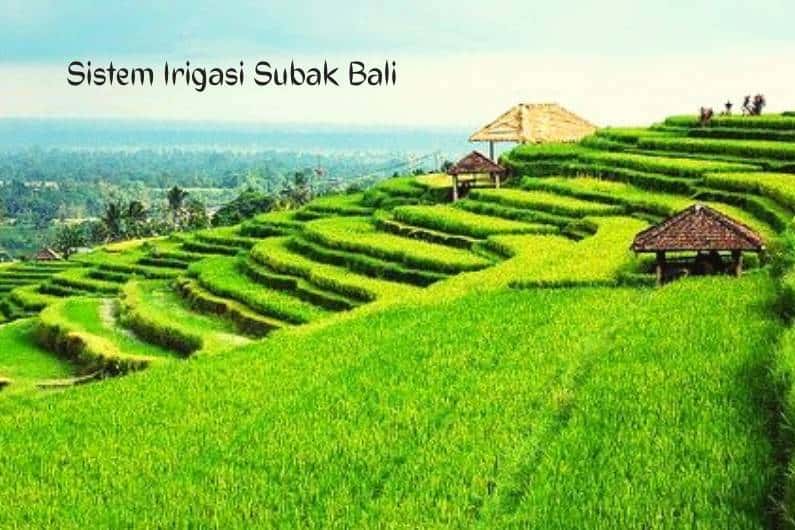One of the traditional irrigation systems inherited from the past that is still sustainable today is the Subak irrigation system originating from Bali. The legacy of this very old irrigation technology has even been declared a world cultural heritage by UNESCO since June 29, 2012. subak is a combination of irrigation community organizations, agricultural production units, autonomous business entities and religious communities.

Irrigation technology has existed since ancient times. Estimates start from the heyday of the Hindu kingdoms in the archipelago. The irrigation system continues to develop from time to time becoming more modern and adapting to geographical characteristics and agricultural cultivation. Even so, the legacy of this traditional irrigation system is still sustainable today.
Subak and Tri Hita Karana's Philosophy
The word Subak itself is a word in Balinese. The word can be seen in the Pandak Bandung inscription in 1072 AD and refers to a social association of farmers who determined the use of the subak irrigation system for rice plants.
Implicitly subak is a farming community organization in Bali that specifically regulates irrigation management or traditional rice field irrigation which is a manifestation of the philosophy of tri hita karana. Philosophy that continues to be held firmly from generation to generation across generations.
Tri Hita Karana etymologically comes from the word Sorting which means three hita which means happiness or well-being, and Karana which means cause. So, Tri Hita Karana means "the three causes of happiness and well-being".
In principle, it means the way society maintains balance. Which is closely related in the relationship between human beings, humans with God, and humans with nature.
The application of the principle of the traditional subak irrigation system is aimed at land that cannot stand alone. All rice fields in one area in one unit. Therefore, if one of the rice fields is disturbed, the other fields will also be disturbed.

Subak is a Fair System
Just like the irrigation system for rice fields in other areas, every farmer who owns a rice field has the right to a water dam (pengalapan), a ditch (jelinjing) and a water channel to the land (cakangan). So that each plot of rice fields can get water needs evenly and fairly.
Not only that. Members of the subak in an area work together to make, maintain, and manage the facilities of this subak irrigation system.
The application of the subak system as irrigating rice fields is regulated in order to realize justice for fellow members. If a field of rice fields has two or more waterways (cakangan) adjacent to each other, the heights must be the same.
This is so that the flow of water to the fields of each farmer remains smooth. Even so, the width of the channel can adjust the area of rice fields cultivated by farmers.
Subak Irrigation System Based on Religious Value
In subak associations, it is not only about agriculture, but also about rituals and worship. This is in accordance with the Tri Hita Karana philosophy, the relationship between God, humans, and nature must be interrelated.
One of the applications of the subak irrigation system is to ask for fortune and land fertility. The application of subak irrigation itself is part of the ritual of worship to protect the universe.
Rice fields, rice crops, and water play an essential role in this traditional Balinese irrigation system. All three are closely related to the power of Dewi Sri (Goddess of fertility and prosperity).
Therefore, every construction of a subak irrigation system is required to build a temple. Each subak irrigation system generally has a temple, namely Pura Uluncarik or Pura Bedugul. The temple was dedicated by farmers to Dewi Sri.
So the Subak irrigation system does not only regulate problems and technical matters of water regulation and distribution. But also pay attention to environmental, social, and religious aspects. Thus will be achieved balance in the universe. , togetherness, honesty, sincerity, and sincerity that lead to peace.
See also:



